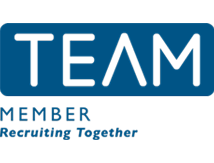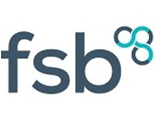Making a career change can be one of the most transformative decisions in your life. It can bring new opportunities, challenges, and fulfillment, but it also comes with uncertainties and risks. Whether you’re feeling stuck, burned out, or simply curious about exploring something new, a career change is a big step that requires careful thought. Here are some key things to consider when choosing your new path.
1. Self-Assessment: Know Your Strengths and Interests
The first step in any career change is understanding who you are. Take a deep dive into your skills, values, and passions. Reflect on your strengths and consider how they align with your potential new career. What excites you? What comes naturally to you? Tools like personality assessments, skills inventories, and career coaching can provide valuable insights.
Ask yourself:
– What are my core skills, and how transferable are they?
– Which aspects of my current job do I enjoy the most?
– What do I find most fulfilling in my professional and personal life?
Understanding yourself can help you identify careers that not only suit your skill set but also match your personal and professional aspirations.
2. Market Research: Understand the Industry Landscape
Once you have a clear idea of your interests and strengths, research the industries or roles you’re considering. Look at job market trends, demand, and future growth potential. This helps you gauge the viability of your chosen field and anticipate challenges like job availability and salary expectations.
Consider:
– Are there growth opportunities in this field?
– What are the typical salary ranges, and do they meet your financial needs?
– Is the industry stable, or is it prone to disruptions and economic downturns?
Exploring industry reports, LinkedIn job postings, and speaking with professionals already in the field can give you a realistic picture of what to expect.
3. Skill Gaps: Identify and Address Your Learning Needs
A career change often requires developing new skills or enhancing existing ones. Identify the key skills needed in your desired field and assess where you currently stand. This could involve technical skills, soft skills, or industry-specific knowledge.
Steps to address skill gaps include:
– Enroll in courses, certifications, or boot camps relevant to your new field.
– Gain experience through freelancing, volunteering, or side projects.
– Network with professionals in the industry to learn about the skills they value.
Investing in yourself can make you a strong candidate and build your confidence as you transition.
4. Financial Implications: Plan Your Finances
Changing careers can impact your financial situation, especially if it involves starting at a lower level, taking a pay cut, or investing in further education. It’s essential to assess your current financial position and make plans accordingly.
Questions to consider:
– How much time can I afford to spend on upskilling or studying?
– Can I manage a potential decrease in income during the transition period?
– Do I have a financial safety net or savings that can support me?
Budgeting and financial planning are critical. You might need to cut back on expenses temporarily or explore part-time work to support your transition.
5. Networking: Leverage Connections and Build New Ones
Networking is a powerful tool during a career change. Your existing network can provide support, advice, and even opportunities, while building new connections in your desired field can open doors you hadn’t considered.
Ways to network effectively:
– Attend industry events, webinars, and workshops.
– Connect with professionals on LinkedIn and join relevant groups.
– Seek informational interviews to learn more about the industry and role expectations.
Don’t be afraid to reach out for advice or mentorship. Most people are willing to share their experiences and insights, which can help guide your decision-making.
6. Test the Waters: Experiment Before Committing Fully
Before fully committing to a new career, consider ways to test the waters. This could be through part-time roles, internships, freelance work, or side projects. Experimenting allows you to gain hands-on experience and see if the new path is as fulfilling as you envisioned.
Consider:
– Taking on freelance work to build experience without quitting your current job.
– Engaging in a passion project that aligns with your new career interests.
– Shadowing professionals or seeking internships, even if unpaid, to gain insight.
Testing your career choice can save you time and resources by ensuring it’s the right fit before making a full commitment.
7. Emotional Readiness: Prepare for the Ups and Downs
Changing careers is not just a practical decision; it’s an emotional journey. You’ll likely face moments of doubt, fear of failure, and stress as you navigate unfamiliar territory. Assess your emotional readiness and build resilience to cope with these challenges.
Tips for emotional preparation:
– Set realistic expectations; a successful transition often takes time.
– Surround yourself with supportive people who encourage your goals.
– Practice self-care to maintain a healthy work-life balance during the transition.
Embrace the process with an open mind, and remember that every step, even setbacks, is part of your growth.
8. Long-Term Vision: Align Your Change with Your Future Goals
Finally, consider how this career change aligns with your long-term goals. Will it provide the work-life balance you desire? Does it allow room for personal and professional growth? Think about where you want to be in five, ten, or even twenty years.
Ask yourself:
– Does this new path align with my vision for the future?
– Will it allow me to live the kind of life I want?
– How will this change impact my family, lifestyle, and other personal commitments?
Your career change should be more than a short-term fix; it should be a strategic move toward a fulfilling future.
Conclusion
A career change is a bold and courageous step, but it requires thorough preparation and thoughtful consideration. By assessing your strengths, researching your options, addressing skill gaps, and preparing emotionally and financially, you can set yourself up for a successful transition. Remember, the journey may be challenging, but with the right mindset and planning, your new career can lead to a more rewarding and fulfilling life.
As always, if we can assist you with reviewing your career options, please reach out. We also have a range of career coaching programs that we offer.







